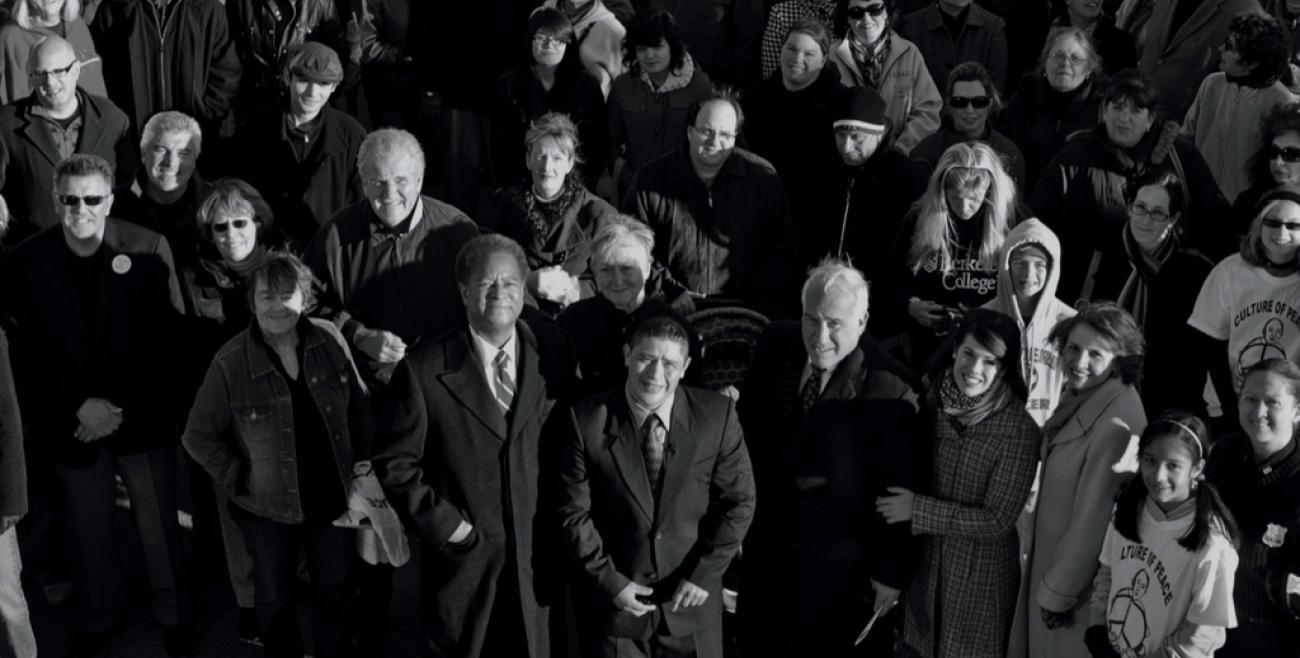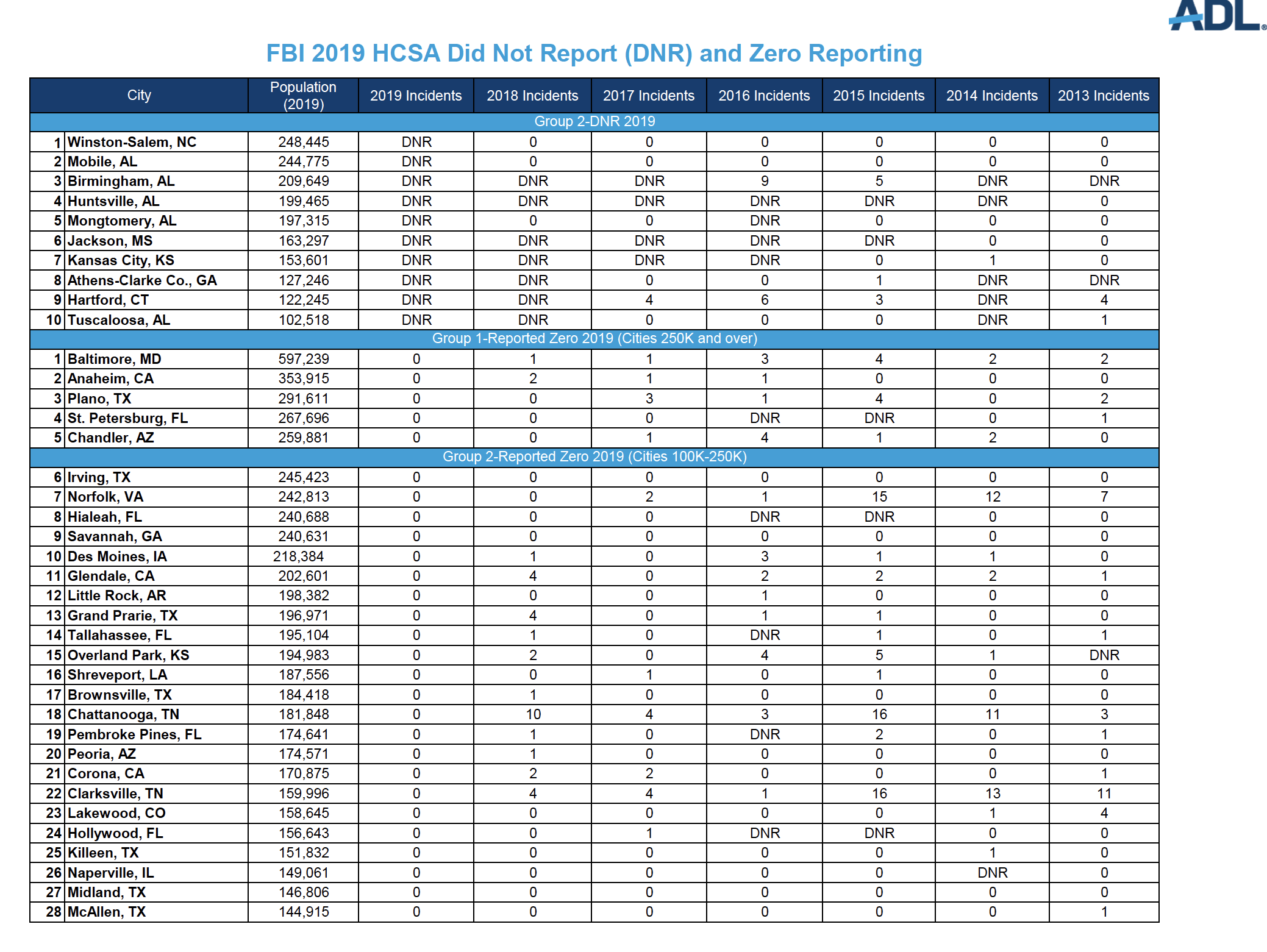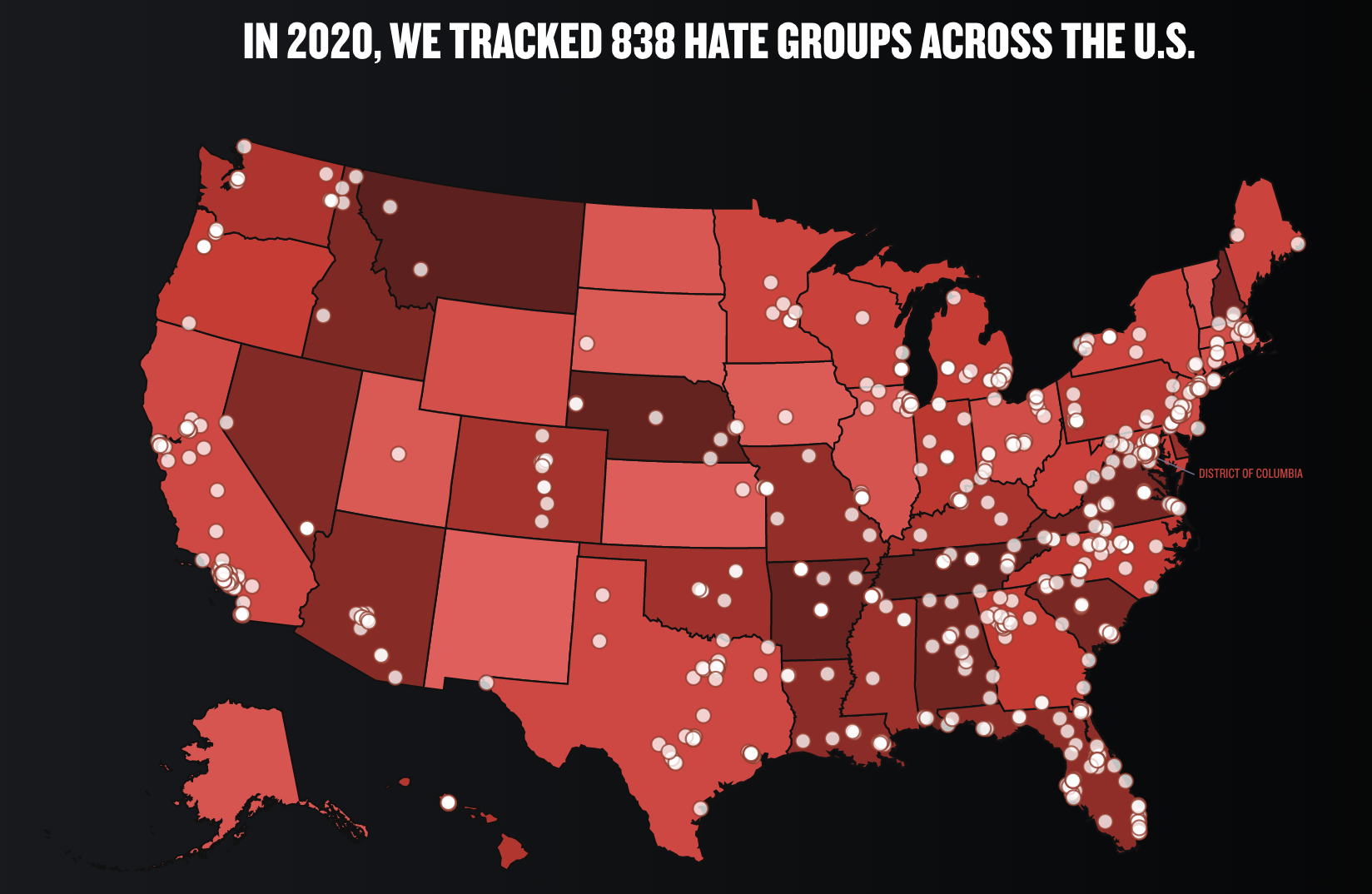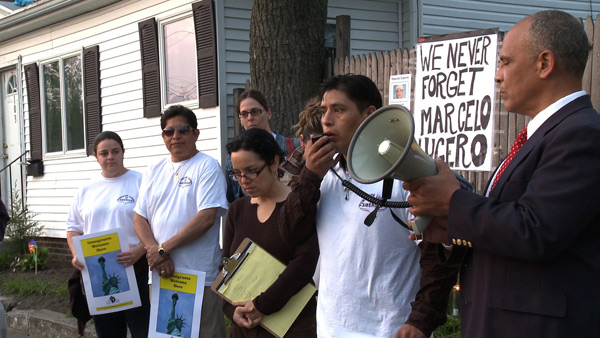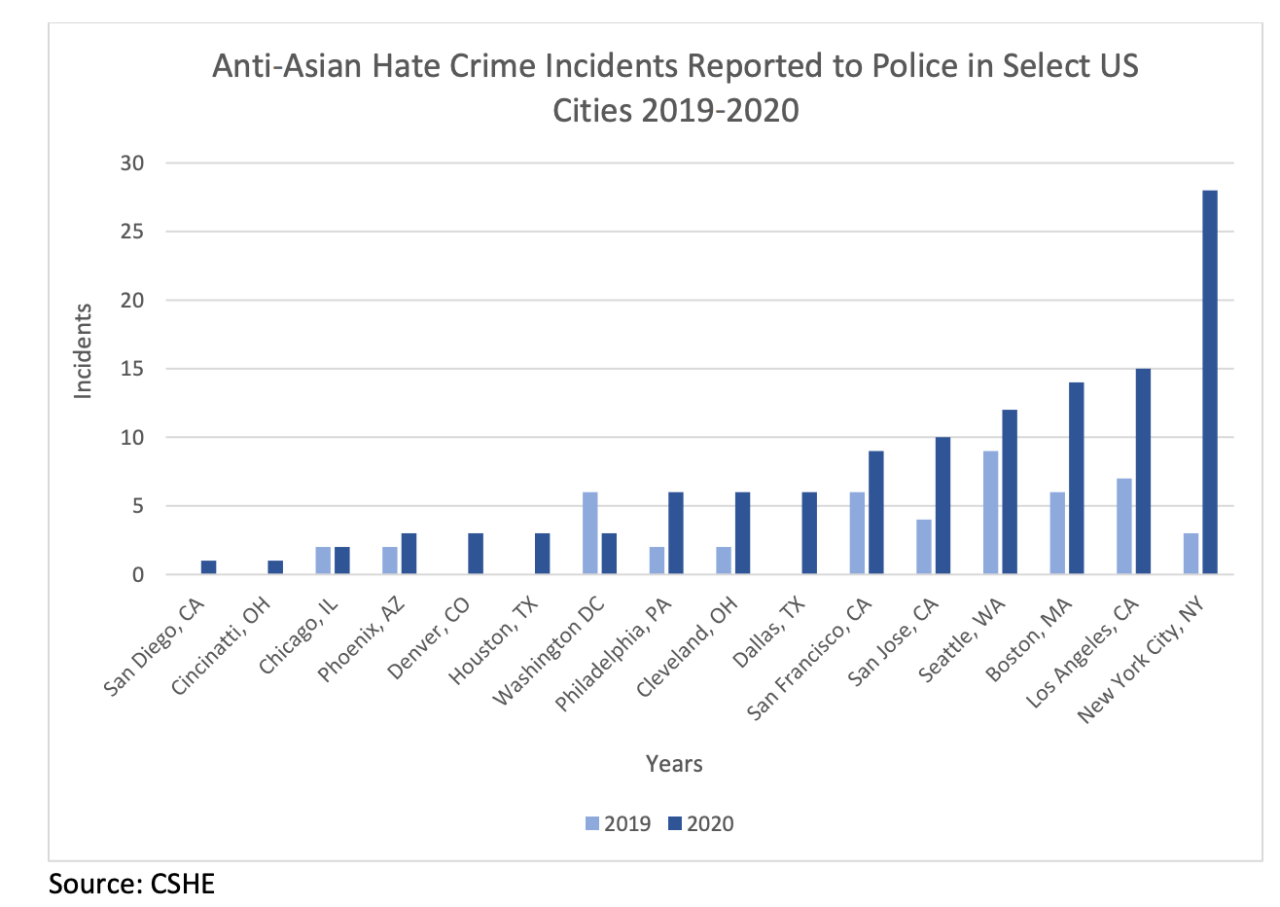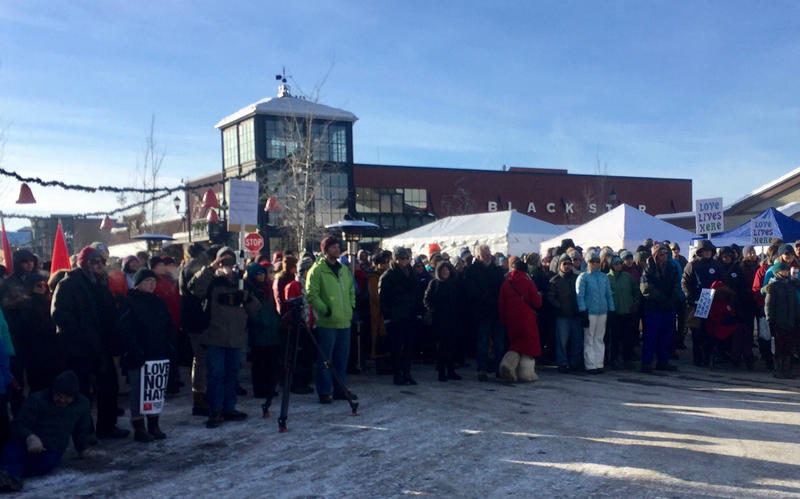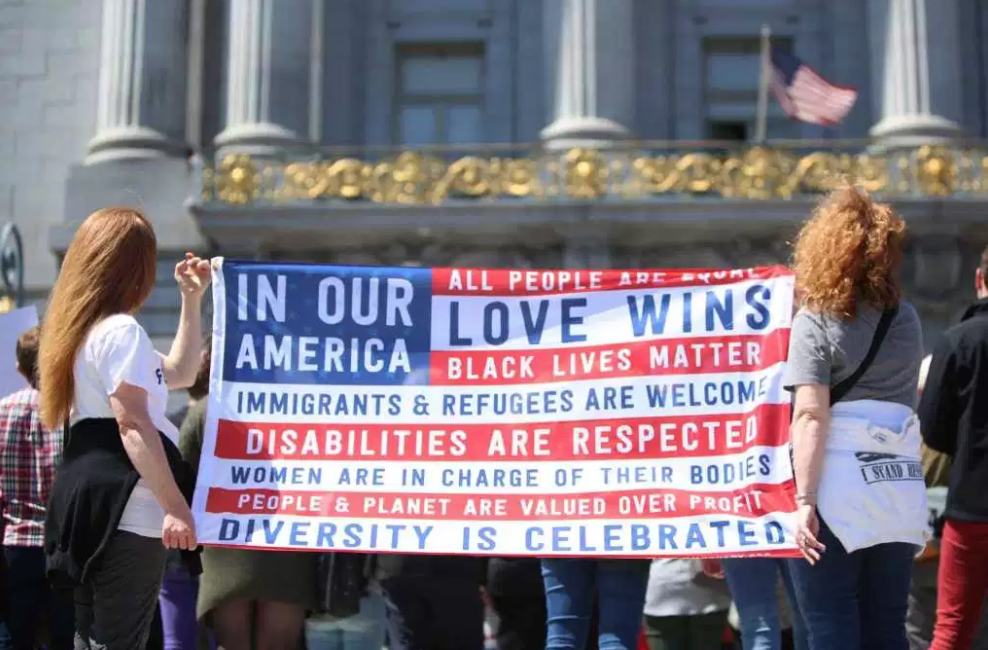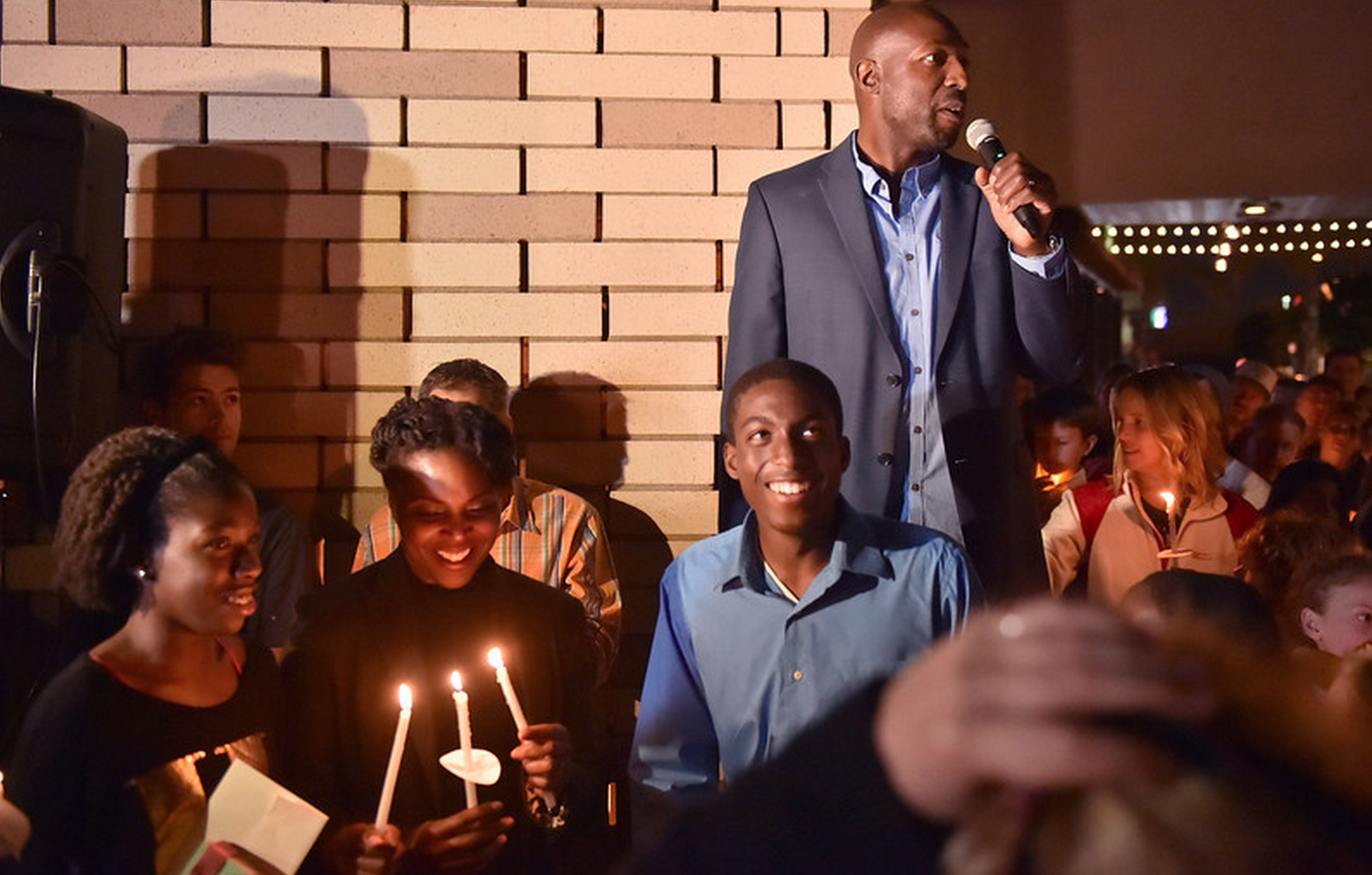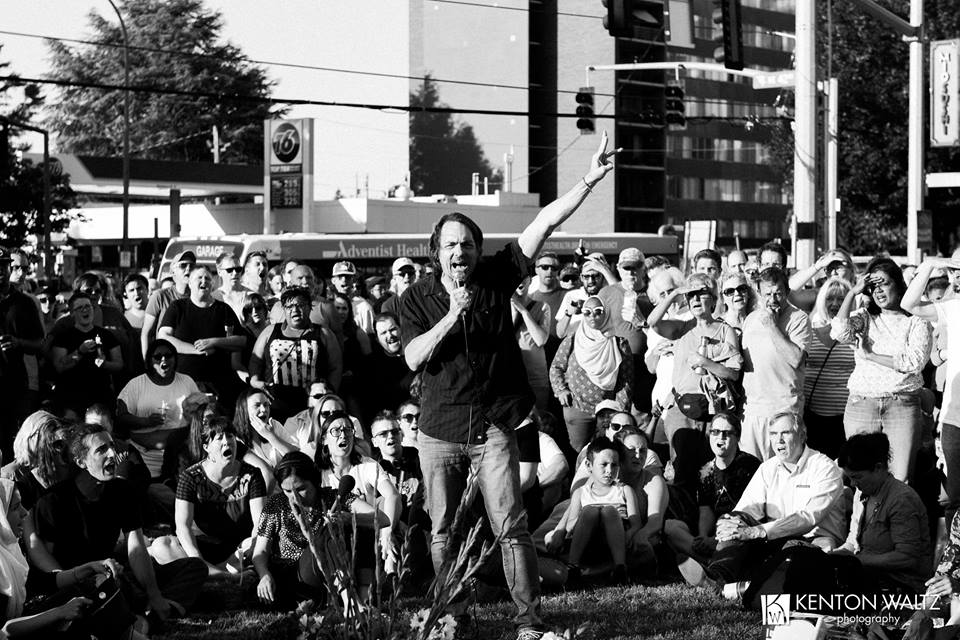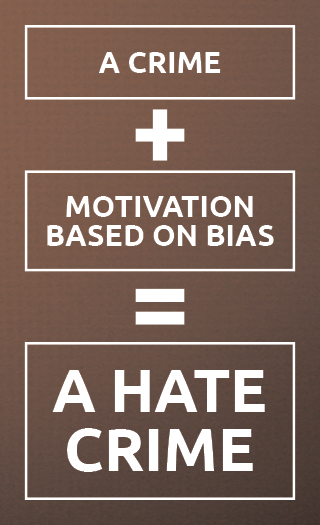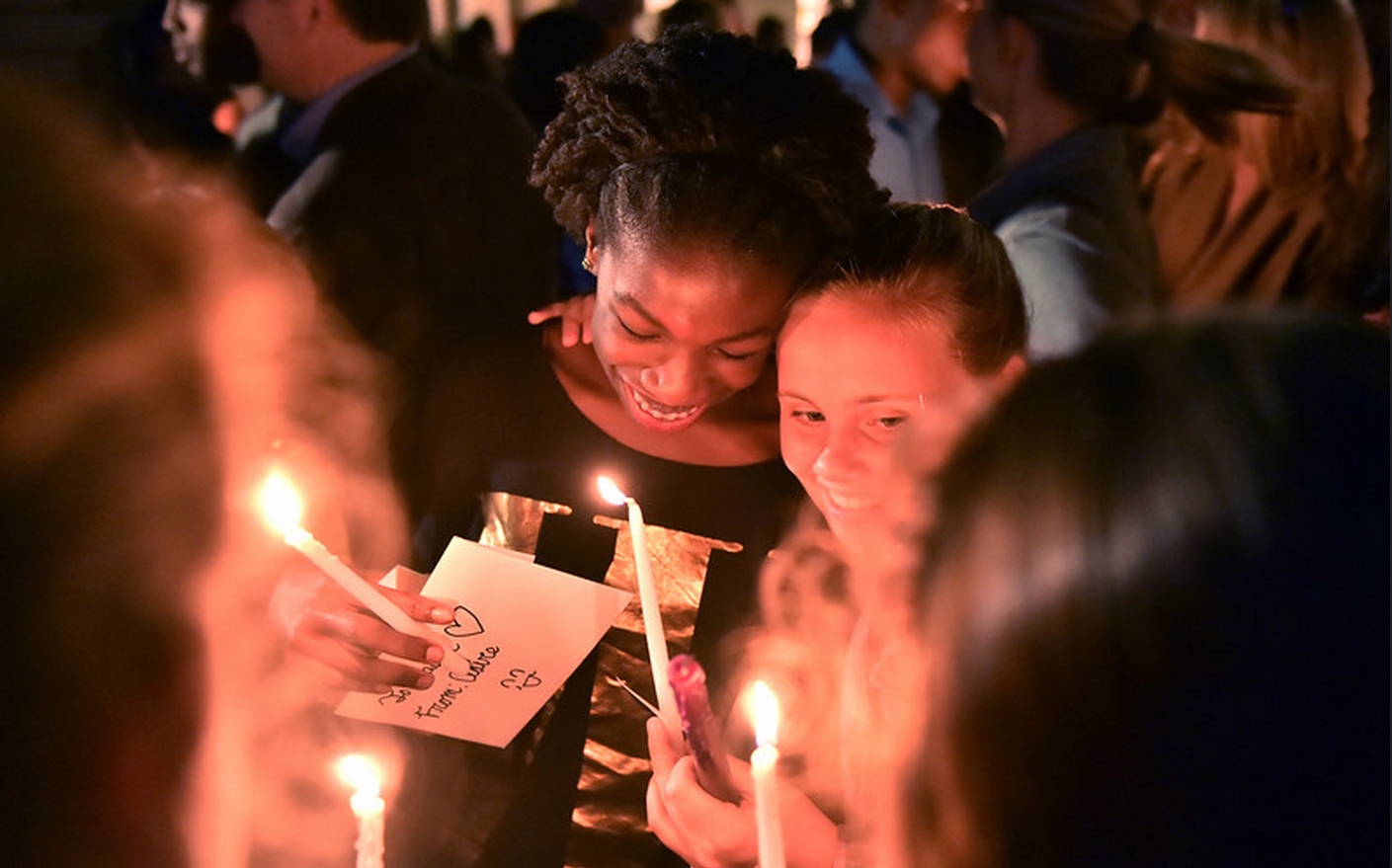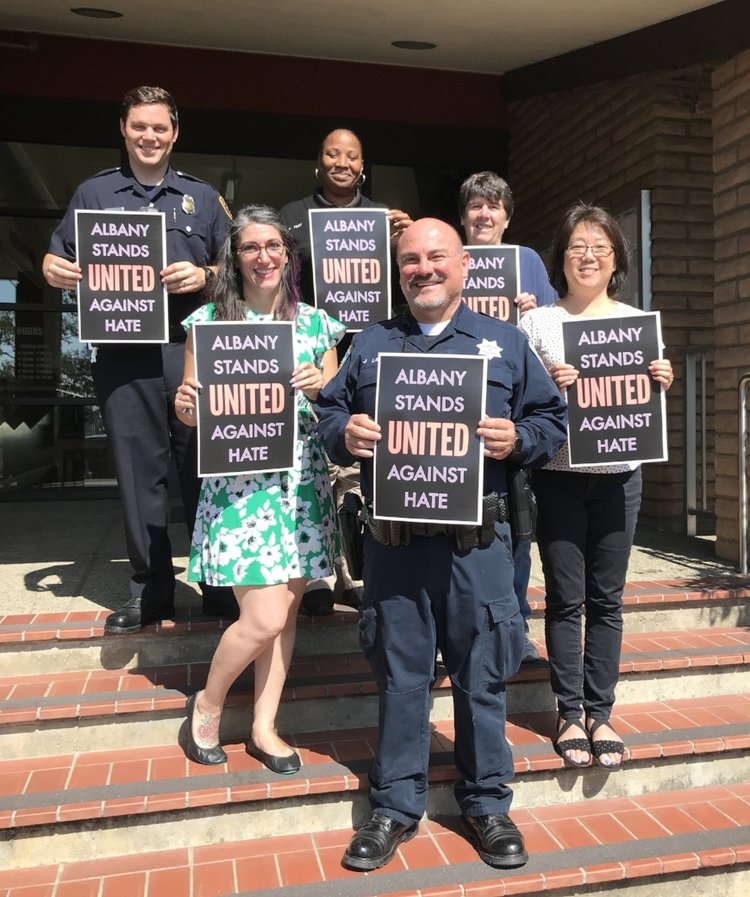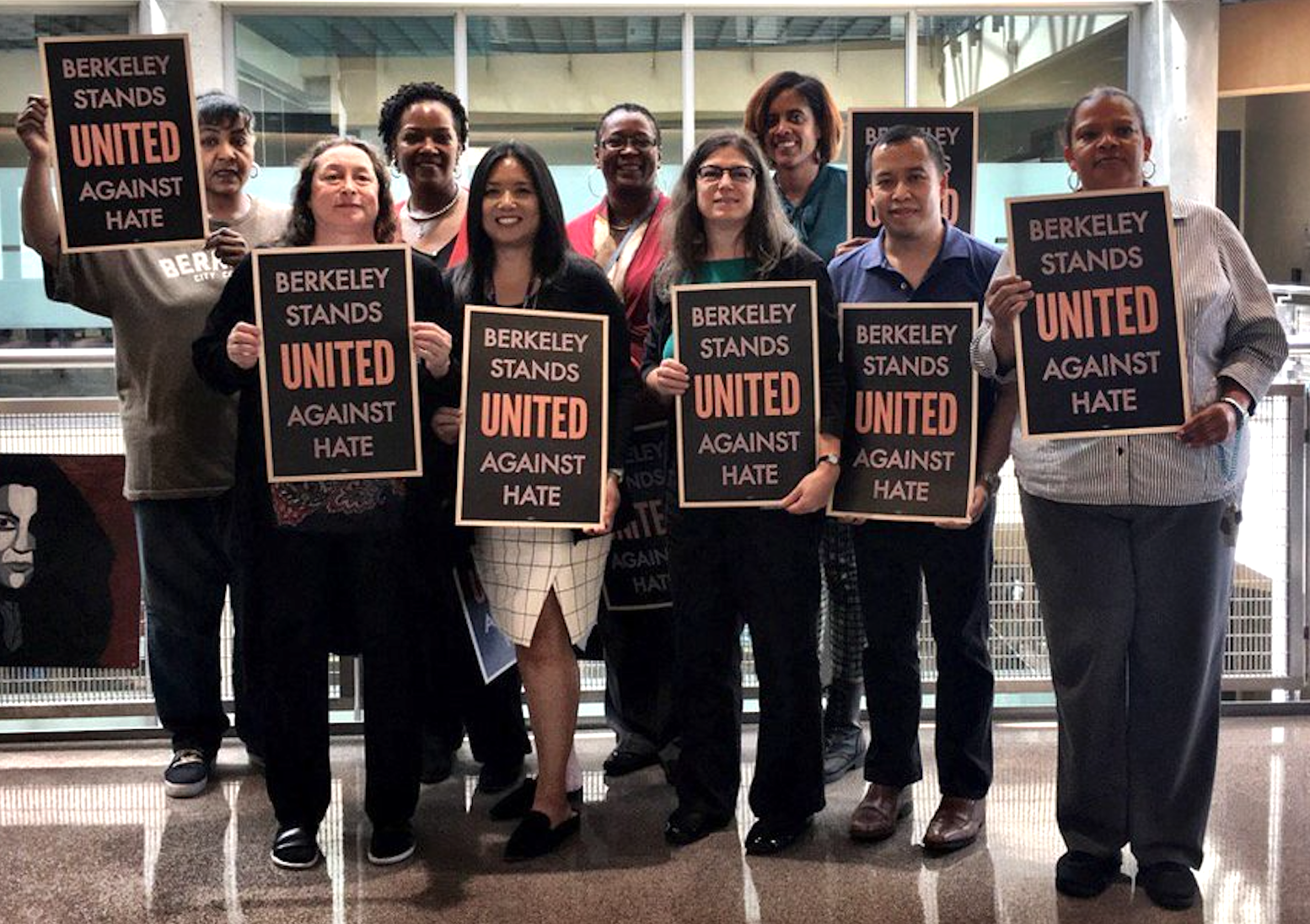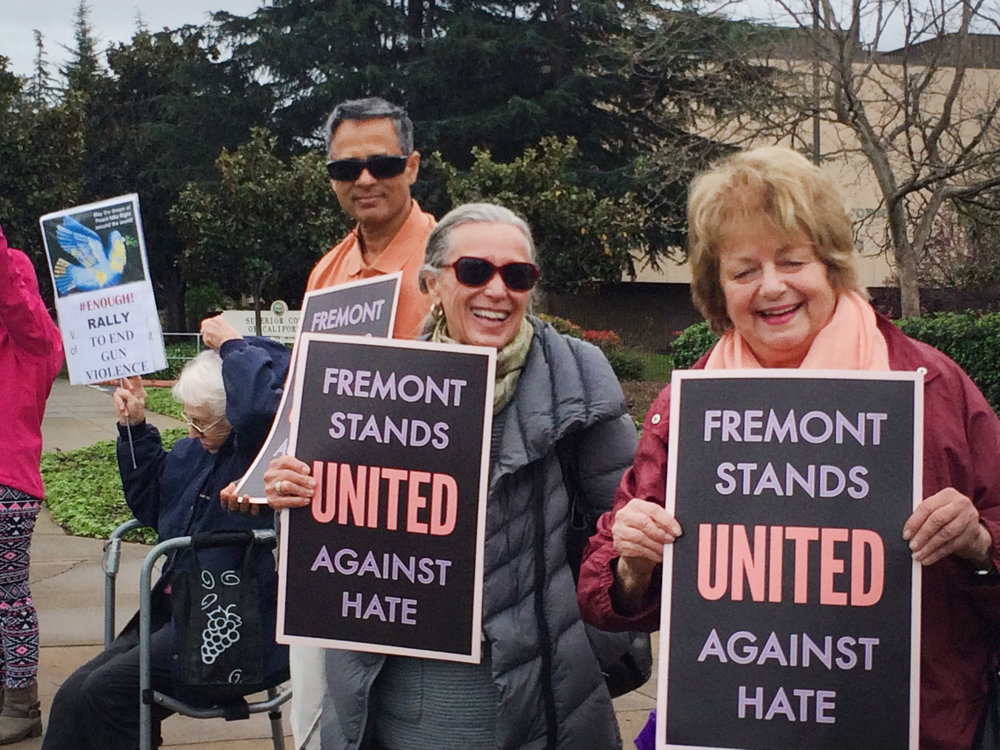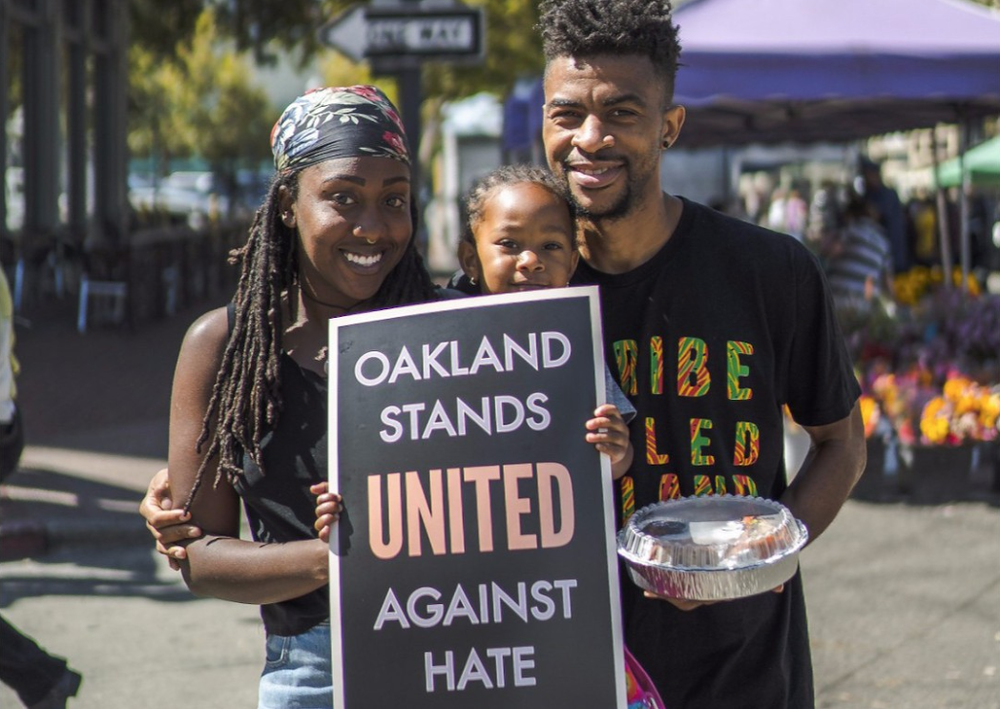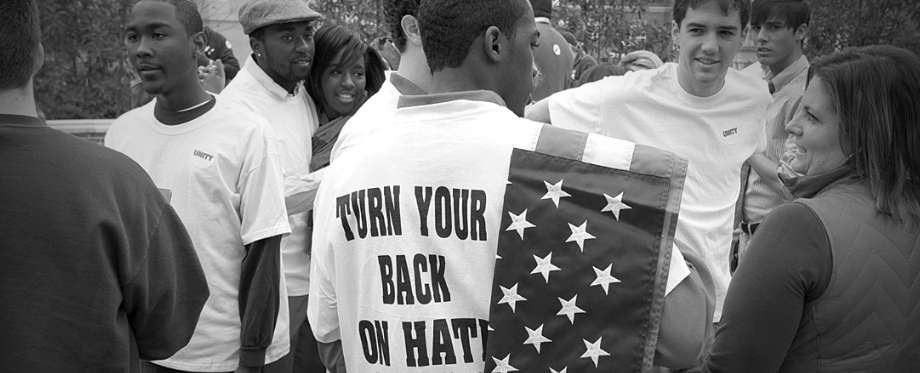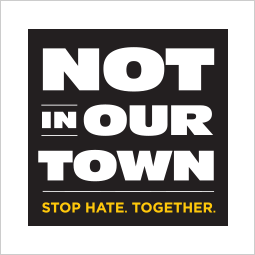Nearly two-thirds of hate crimes go unreported to law enforcement.
Reporting a Hate Incident
Hate crimes and hate incidents are notoriously underreported. Community leaders may be reluctant to report incidents for public affairs reasons, and those targeted by hate may not be comfortable doing so. However, for hate crimes to be most effectively addressed, an accurate public record is imperative.
If you are not comfortable reporting to law enforcement find a trusted intermediary or a community group to support you in this process.
Actions:
- If you're comfortable going to law enforcement, file a police report either in person or by phone with the local agency where the incident occurred. Ask for the responding officer’s name and badge number. If you are not comfortable reporting to law enforcement, find a trusted intermediary or community group to support you in this process. You can also share your story at communitiesagainsthate.org.
- If you believe the incident was motivated by bias, confirm with the officer that the official police report accurately records the incident as a hate crime.
- In the report, tell the responding officer all of the details of the incident you recorded or remember, including the perpetrator’s gender, age, height, race, weight, clothes or other distinguishing characteristics. If any threats or biased comments were made, such as racial slurs or anti-gay epithets, include them in the report. Take photos or document any property damage and bias and/or hate messages before they are removed.
- Follow up with the officer to make sure an incident report was filed and to obtain a copy of the report and case number.
- In addition to contacting your local law enforcement agency, also contact your local FBI field office and provide the same information. For a list of FBI Field Offices, visit https://www.fbi.gov/contact-us/field-offices.
Why America Fails at Gathering Hate Crime Statistics
The non-profit organization ProPublica conducted extensive research to identify the greatest obstacles to accurate hate crime reporting in the United States. The critical report is based on a review of incident reports and aggregate data from hundreds of law enforcement agencies across the country, as well as interviews with law enforcement leaders and civil rights organizations.
According to the report, an estimated half of all hate crime victims do not report the incident to the authorities. But for reported cases, these are some of the key factors that contribute to so many falling through the cracks:
- Misclassification or missed cases that could have been investigated as hate crimes
- Insufficient officer training
- Breakdown in the reporting chain from local agencies to state agencies and the FBI
- Confusion caused by variations in how states define hate crimes
- Uncertainty about whether an incident has to be prosecuted as a hate crime to be counted
As part of community action plans to address hate and intolerance, leaders should convene meetings with local law enforcement agencies to discuss how they are addressing these challenges.
Read the entire ProPublica report here.
of hate crime incident victims were targeted because of the offenders’ bias against race, ethnicity or ancestry.
Does Your City Report Hate Crimes?
Here are the cities in the U.S. with zero reporting of hate crimes.
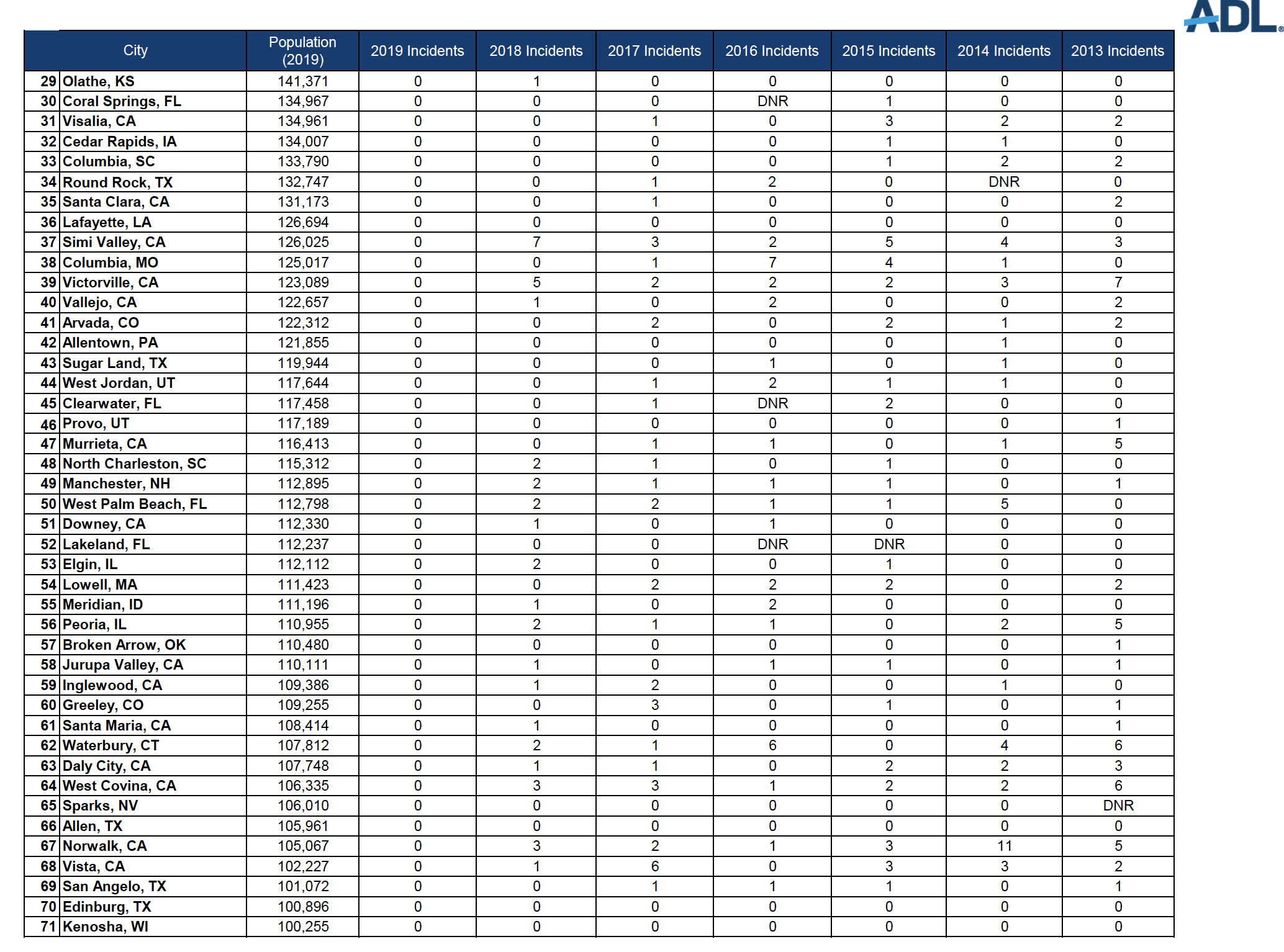
The Problem of Hate in Communities
Hate requires a visible and swift response. Hate groups and perpetrators are seeking violence and a media spotlight to spread their message. Don’t let them set the agenda. Understand the complex and painful responses to hate groups and hate and bias crimes, and remind your community that an attack on one is an attack on all. Remain vigilant and committed to non-violence and the visible rejection of hate, racism, and bigotry.
Threats, bullying, racial slurs and violence deeply affect targeted individuals, their friends and family and entire communities.
Hate groups and the violence they foment have created a dangerous environment in many communities throughout the country, but they can be stopped. Any concerned individual can mobilize their community to create an atmosphere that rejects hate and makes all residents feel safe and welcome.
The Southern Poverty Law Center uses interactive maps to track active hate groups across the United States. Learn more at the Hate Watch blog.
"All hate groups have beliefs or practices that attack or malign an entire class of people, typically for their immutable characteristics."
—Southern Poverty Law Center
On Feb. 4, 2020, during the earliest days of the novel coronavirus, a middle school student in Los Angeles County was told by a classmate that he was a Covid-19 carrier and should “go back to China.” When the boy responded that he wasn’t Chinese, he allegedly received 20 punches to the head and ended up in the emergency room.
The assault, a harbinger of the onslaught of racialized attacks that occurred during the pandemic, helped three Asian American activists who would become co-founders of Stop AAPI Hate, the anti-Asian hate reporting center, realize that racism was spreading faster than the virus itself and something needed to be done to track the growing number of incidents against the community.
Led by Cynthia Choi, the co-executive director of Chinese for Affirmative Action, or CAA; Russell Jeung, professor and chair of the Asian American studies department at San Francisco State University; and Manjusha Kulkarni, executive director of the Asian Pacific Policy and Planning Council, or A3PCON, Stop AAPI Hate is more than a popular hashtag or aggregator of anti-Asian incidents. It’s a rallying cry for a community experiencing the pain and heartbreak of relentless harassment, assaults and even murders.
Read more at NBC News »
Visit the Stop AAPI Hate website »
Report a hate incident (many languages available)
Why Report Hate? Community Stories
Joselo Lucero on the 6-month anniversary of Marcelo Lucero's death.
Hate doesn’t occur in a vacuum, and for far too many communities, it is not new. To some, hate incidents may appear isolated; however, these acts are often a symptom of deeper societal issues. In order to create an environment where people of diverse backgrounds and identities are safe, it is important that community leaders not just react when a hate incident occurs. Communities must take proactive steps to identify policies and practices that perpetuate systemic discrimination and enact procedures to prevent future hate incidents. Here are some examples of effective community responses to hate:
Location: Patchogue, New York
Incident: Hate incidents targeting immigrants in Suffolk County, New York had been occurring for years, but a series of attacks by high school students against Latino residents in Patchogue, NY culminated with the 2008 murder of Marcelo Lucero, an Ecuadorian immigrant who had lived in the Long Island village for 13 years.
Action: Mayor Paul Pontieri, the victim’s brother, Joselo Lucero, and Patchogue residents sought to openly address the underlying causes of anti-immigrant violence, and began taking steps to ensure everyone in their village would be safe and respected. Faith leaders opened their houses of worship for discussion and as safe places for immigrants to surface hate incidents. Art projects promoting inclusion emerged in school and community settings. The Village Trustees passed a resolution stating that anti-immigrant rhetoric not only harms targeted groups but "our entire social fabric." The Suffolk County Police Department assigned two Spanish-speaking officers to Patchogue, including Officer Lola Quesada. As community liaison, Officer Quesada appeared on talk radio to inform immigrants about their rights and encourage them to report hate attacks to police.
Location: Bloomington, Minnesota
Incident: An improvised explosive device rocked the Dar Al Farooq Islamic Center as congregants gathered for morning prayers.
Action: Hundreds of people gathered at the Center after the mosque was targeted. Faith and civic leaders joined community members to fill a soccer field behind the Center and stood in solidarity with their Muslim neighbors. Rep. Tim Walz addressed the crowd, “To the children who are here, the message you are hearing from your neighbors is, you are cherished, you are loved, you are Minnesota and you are America.” Days earlier, Minnesota Governor Mark Dayton came to the site and denounced the attack as a “terrible, dastardly, cowardly” “act of terrorism.” A GoFundMe page was also set up and raised over $70,000 from 1800 supporters in a matter of days to repair the damaged community center and mosque.
Location: Bedford, Massachusetts
Incident: Anti-Semitic incidents occurred in Bedford, MA schools in 2014, including graffiti and bullying.
Action: The school principal went on a morning television show to address the incidents and urged everyone in the school to come together for a meeting. Teachers and students met after school to discuss the situation and discovered that the hate ran deeper than the recent incidents. Bedford Schools Superintendent Jon Sills sent an open letter to parents strongly condemning the incidents, opening a dialogue, and affirming Bedford as a community that refuses to tolerate hate. The Bedford Police Chief Robert Bongiorno also worked with Rabbi Susan Abramson and school leaders to ensure community safety.
of hate crime incidents reported to the FBI in 2016 happened in or near residences.
